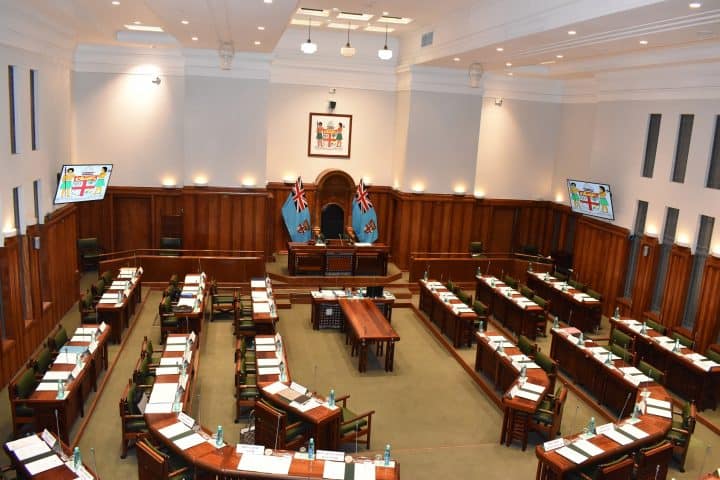NGOCHR Media Release: Concern over Bills tabled in Parliament that propose changes to the judicial system.

The NGO Coalition on Human Rights is deeply concerned about the proposed changes to the judicial system in the Anti-Corruption Division (Bill No. 1) and Abolition of Assessors (Bill No. 2) that were tabled in Parliament this week.
We fully support the open letter from the Fiji Law Society to the Attorney General and Members of Parliament and strongly denounce the fast-tracking of Bill No. 1 and Bill No.2 of 2021.
The Bills tabled in Parliament yesterday need a careful review and should not be expedited under the guise of Standing Order 51. Both Bills affect the fundamental human rights of those that rely on our Criminal Justice System.
The Anti-Corruption Division (Bill No. 1) calls for the creation of a specialised division in the High Court to hear corruption-related matters. While the fight against corruption with independence and autonomy, are important, the current state of child abuse cases in Fiji warrants immediate attention.
In addition, the Abolition of Assessors (Bill No. 2) removes the checks and balances on judges and fair trial. The assessor system in Fiji has operated well for over 100 years and should continue to do so. This cost-effective process guard against elitism, keeps the community engaged, and promotes democracy and inclusivity.
The public has an inherent interest in participating actively in the criminal justice system and the assessor system gives them the right to do so.
The NGOCHR strongly urges Members of Parliament to defer the Bills for wider consultation, as the proposed changes are significant and affect our commitment to the principles of democracy, good governance, justice and human rights.
Yesterday, the Fijian Parliament unanimously agreed to ratify the Optional Protocol to the Convention on the Rights of the Child on the Sale of Children, Child Prostitution and Child Pornography. Taking into account statistics released by the Office of the Director of Public Prosecutions and other agencies, child protection seems to be a major challenge for Fiji’s Justice System and the focus should be on strengthening child-friendly courtrooms and creating special divisions to deal with child protection. In its rape and sexual offence statistics for 2020, the ODPP recorded that of the 240 victims, 165 were under the age of 18, with the youngest being 8-years-old.
In our view, a Child Protection Division will foster an inclusive support system for survivors of child abuse and sexual offences. The court plays a central role in making decisions regarding the protection of children who have been abused. There is an immediate need for a specialised court that deals with child protection, having specialised procedures and personnel as well as support services for survivors.
There are urgent human rights key issues that already exist exacerbated by the Coronavirus pandemic and the recent natural disasters and continuous deteriorating weather patterns that have left many of our own people without shelter, security and in economic strife. These must-have immediate responses.
Fiji promotes itself as the leader in human rights and must remain committed to these values within our own country. Fiji’s representative to the United Nations, Nazhat Shameem Khan was also just elected as the President of the UN Human Rights Council.
END
The Members of the NGOCHR include the Fiji Women’s Crisis Centre (FWCC), Fiji Women’s Rights Movement, Citizen’s Constitutional Forum (CCF), femLINKpacific, Social Empowerment and Education Program (SEEP), and Diverse Voices and Action (DIVA) for Equality Fiji. Pacific Network on Globalisation (PANG) and Haus of Khameleon (HoK) are observers.
